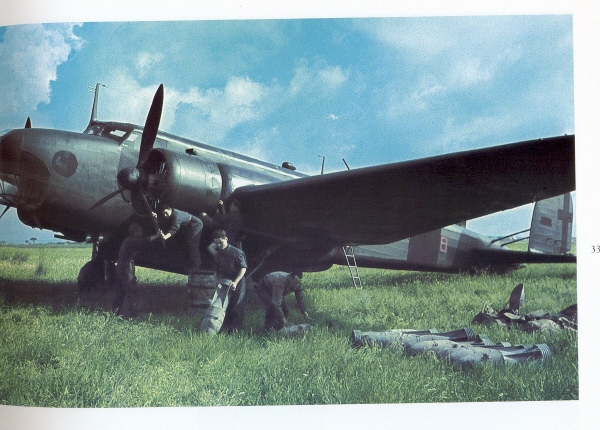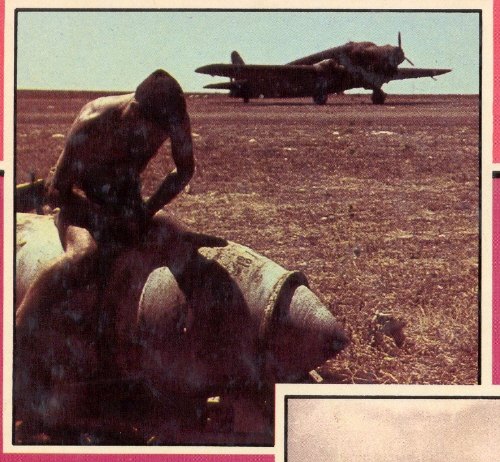Page 1 of 1
Bombs Color
Posted: Thu Sep 02, 2010 7:11 pm
by RiK
Hello everybody;
I tried to find on all the 3ds but without success...
how are the colors of the bombs external ? in some picture I found a dark green ( more olive green) but I am not sure if is real.
In particular external charges from 1935 until 1940..
I am building now a CANT Z 501 Italeri 1/72 Gabbiano which has 2 500kg bomb underwings; maybe these are different colors becuase the Idro planes?
Anyone can help me?
tnx
RiK
Posted: Wed Sep 08, 2010 6:33 am
by MauroG
Hi RiK,
I am not sure this could help you with the quite specific timeframe you are referring to, but you may find interesting checking out
<a href="
http://www.biografiadiunabomba.it/resid ... aereo.html"> this page</a>. It is from the website of an Italian EOD operator and contains some info pages about air-dropped ordnance of Regia Aeronautica. (Unfortunately, the source where the pages were scanned from is not stated.)
According to this reference, the most frequent combination is grey body and red point tip.
Try also <a href="
http://miles.forumcommunity.net/?t=10832398"> this discussion</a> from an Italian Militaria forum, with colour photographs of a light blue bomb tail, recovered form its use as … flowerpot stand. It is discussed how colour details depended upon the explosive charge (light blue was for Amatol).
Hope this helps a little.
Mauro
Posted: Wed Sep 29, 2010 7:17 am
by MauroG
Just found on the Net:
http://www.ibiblio.org/hyperwar/USA/ref ... -Italy.pdf
(Italian and French WW2 Explosive Ordnance Technical Manual by the US Departments of Army and Air Force)
~
Posted: Wed Sep 29, 2010 3:08 pm
by Stefano
Bombs in the kit are a couple of 250 kgs ordnance. Actually, they were seldom used by Z.501s, as the standard load was a couple of 160 kgs anti-submarine bombs. Pictures are from the manual indicated by MauroG:
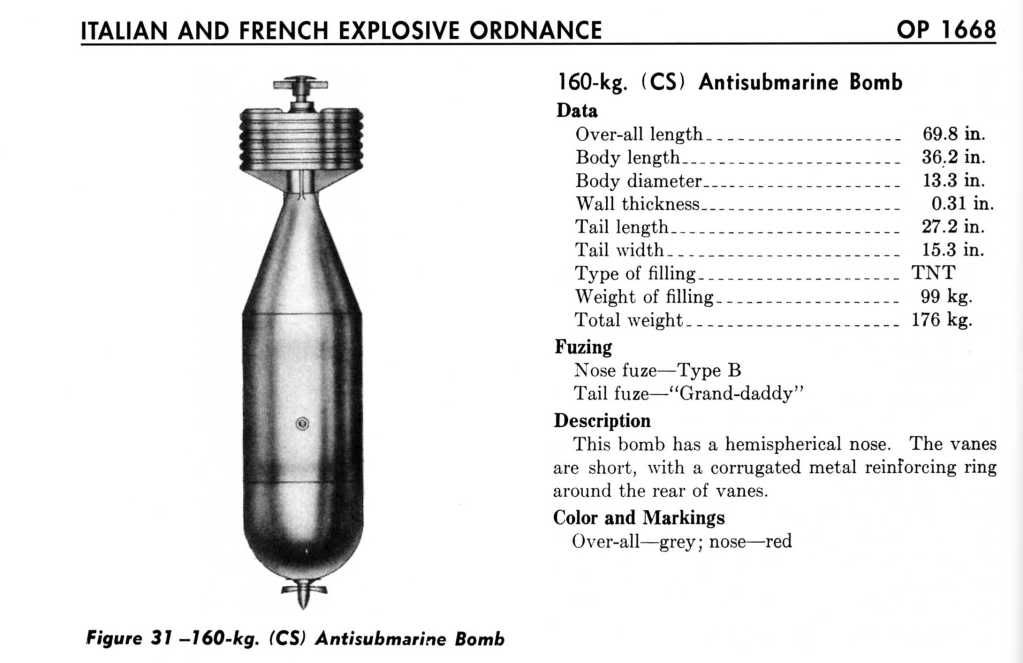
Nose fuse had four-blades steel vanes, tail fuse had three-blades brass vanes.
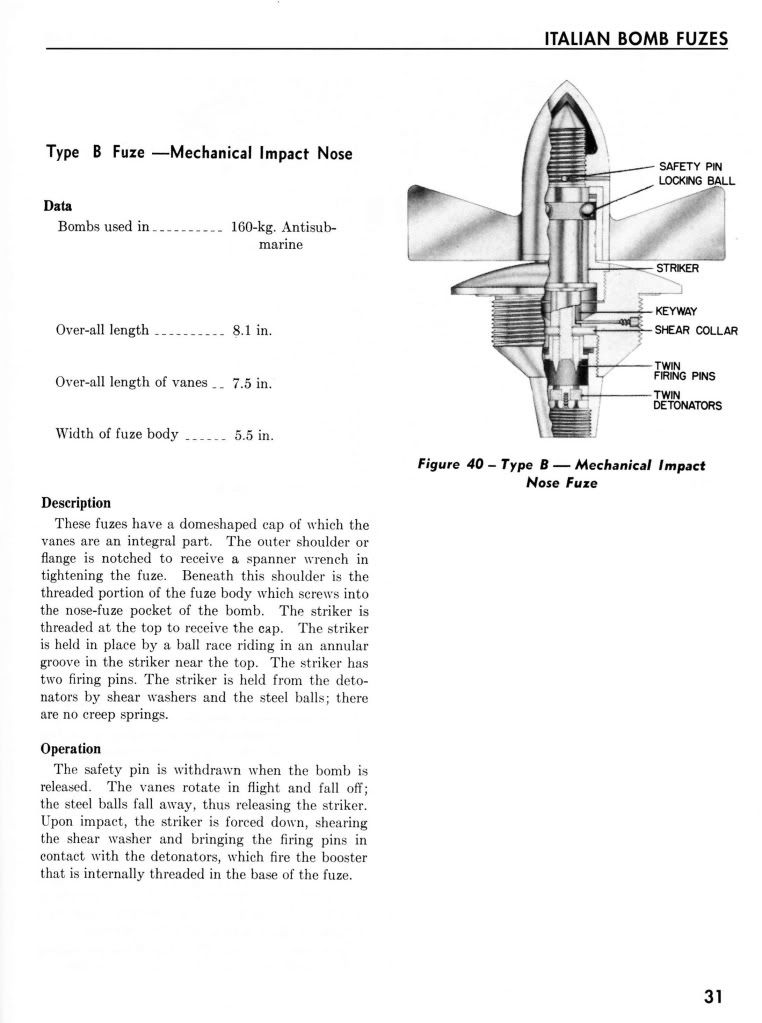
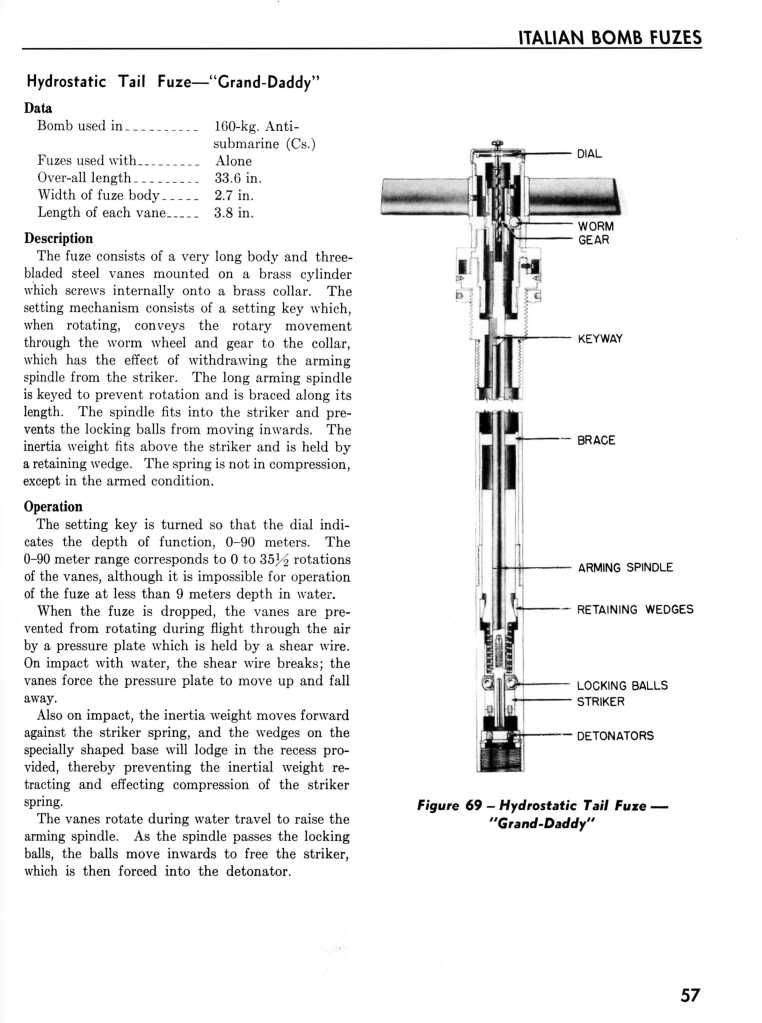
There were various shades of grey, as it wasn't a standard colour, nor had a camo purpose, but it was just an anti-corrosive industrial paint. Sometimes, the bomb body, the tail or both were blue (same meaning as above) like current gas bottles.
Stefano
Posted: Thu Sep 30, 2010 1:58 am
by RiK
Oh yes, many thanks! I jump the descrition color!
Thanks a Lot.
RiK
Posted: Thu Sep 30, 2010 7:06 pm
by stefanuccio
Ciao Stefano
sempre in gamba eh!
This was anexcellent reply !
stefano l'africano
Posted: Thu Sep 30, 2010 7:08 pm
by stefanuccio
hallo RIK
I love your motto
l'omino elettrico is my favourite logo well deserved motto of the sparvieri
stefano L 'africano
Posted: Fri Oct 01, 2010 5:53 am
by MauroG
Hi again,
I have flipped through my references these days and I have found a couple of articles on this subject by Nicola Malizia published on Storia Militare (
http://www.storiamilitare-aes.com/):
L'armamento dei velivoli della Regia Aeronautica (bombe ordinarie), issue 42 March 1997
Le bombe speciali della Regia Aeronautica, issue 44 May 1997
(Unfortunately, I see that these ones are no longer in the list of back issues available from the publisher. If you are interested, keep an eye out to stands at model shows and fairs when past issues of several magazines pop out occasionally at bargain price.)
Here Malizia provides more details and lists the ordnance types by the official designation. He explains also that existed two versions of the 100kg and 500kg class bombs, mina (designation letter M) and torpedine (designation letter T), hence the “100-M” and “100-T” labels. The torpedine contained about as twice as explosive in weight than the mina. Both versions had light grey body, with the M having a red tip and the T a light blue one.
It looks like that only the T version existed for 50kg, 250kg and 800kg weapons.
As far as idroplanes are concerned, Malizia explains how they could carry normal ordnance but often used the 160CS bombs for antisom activity and 160T for attacking harbour infrastructures and facilities.
Ciao
Mauro
Posted: Fri Oct 01, 2010 7:51 am
by RiK
Ciao Mauro and Thanks
I searching on the web the magazine you has show.
really intersting many thenks also to you.
Storia Militare Reference
Posted: Tue Oct 12, 2010 2:59 pm
by Ulrich22
Hello RiK,
I can provide you a copy of the Storia Militare Magazine Article "L'armamento dei velivoli della Regia Aeronautica (bombe ordinarie)", issue 42 March 1997. If you would send me your E-mail adress, I'll make a pdf-file for you...
Best regards,
Ulrich
Posted: Mon Nov 07, 2011 6:29 am
by MauroG
I stumbled upon this British declassified document on the subject:
Italian Bombs and Fuzes (scroll down to the cover image for downloading). It was written for the Royal Engineers EOD service and contains many accurate drawings as well as detailed info on the topic. In some respects it looks more accurate than the US Technical Manual reported in previous posts.
Very worth downloading and perusal.
Mauro
Posted: Mon Nov 07, 2011 2:43 pm
by Stefano
This is the best reference on the matter I've seen! Thanks for sharing.
Stefano
Posted: Tue Nov 08, 2011 7:57 am
by Editor
Thank you for the reference.
Re: Bombs Color
Posted: Fri Oct 14, 2022 12:29 pm
by davenport49
Looking to paint 500Kg GP bombs; references seem conflicting - U.S. tech manual says overall grey with red nose (how much of the nose?); British tech manual says dull blue with 4" red stripe around the nose. can anyone sort this out?
Re: Bombs Color
Posted: Sun Oct 16, 2022 12:45 pm
by Editor



